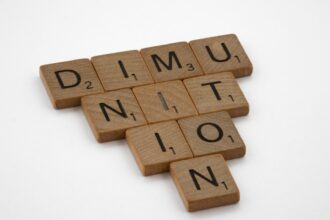Anxiety is a complex emotional response that can manifest in various ways, often leading to feelings of unease, worry, and fear. It is a natural reaction to stress, but when it becomes overwhelming, it can significantly impact your daily life. You may find yourself feeling restless, irritable, or even physically tense.
In some cases, anxiety can escalate to the point where it triggers experiences of derealization and depersonalization. These phenomena can leave you feeling detached from reality or as if you are observing yourself from outside your body. Derealization refers to the sensation that your surroundings are not real, while depersonalization involves feeling disconnected from your own thoughts and body.
Both experiences can be disorienting and frightening, often leading to a cycle of increased anxiety. Understanding these concepts is crucial for recognizing how they intertwine and affect your mental health. By gaining insight into the nature of anxiety and its potential to trigger derealization and depersonalization, you can begin to navigate these challenging experiences more effectively.
Key Takeaways
- Understanding Anxiety and Derealization/Depersonalization:
- Anxiety can lead to feelings of derealization/depersonalization, where individuals feel disconnected from reality or themselves.
- The Role of Anxiety in Triggering Derealization/Depersonalization:
- Anxiety can trigger derealization/depersonalization by overwhelming the mind and causing a dissociative response.
- Symptoms of Derealization/Depersonalization:
- Symptoms may include feeling detached from surroundings, emotional numbness, and a sense of being an outside observer of one’s own thoughts and actions.
- How Anxiety and Derealization/Depersonalization Interact:
- Anxiety can exacerbate derealization/depersonalization, creating a cycle of heightened anxiety and dissociative symptoms.
- Coping Strategies for Managing Anxiety and Derealization/Depersonalization:
- Coping strategies may include mindfulness techniques, grounding exercises, and seeking professional help for anxiety management and symptom relief.
The Role of Anxiety in Triggering Derealization/Depersonalization
Anxiety acts as a catalyst for derealization and depersonalization, often surfacing during moments of heightened stress or panic.
This dissociation serves as a protective barrier against overwhelming emotions or situations that feel too difficult to handle.
You might find that during particularly anxious moments, the world around you seems distorted or unreal, making it hard to connect with your environment. Moreover, the relationship between anxiety and these dissociative experiences is cyclical. As you grapple with feelings of derealization or depersonalization, your anxiety may intensify due to the fear of losing control or not being able to trust your own perceptions.
This heightened state of anxiety can further exacerbate feelings of detachment, creating a feedback loop that can be challenging to break. Recognizing this interplay is essential for understanding how to manage both anxiety and its dissociative counterparts effectively.
Symptoms of Derealization/Depersonalization

The symptoms of derealization and depersonalization can vary widely from person to person, but they often share common threads. You may experience a sense of unreality regarding your surroundings, where familiar places seem strange or distorted. This can lead to feelings of confusion and disorientation, making it difficult to engage with the world around you.
Additionally, you might feel as though you are watching yourself from a distance, as if you are an observer in your own life rather than an active participant. Other symptoms may include emotional numbness, difficulty concentrating, and a sense of time distortion. You might find it hard to connect with your emotions or feel as though you are going through the motions of life without truly experiencing it.
These symptoms can be distressing and may lead you to question your sanity or reality itself. Understanding these symptoms is vital for recognizing when you are experiencing derealization or depersonalization and for seeking appropriate support.
How Anxiety and Derealization/Depersonalization Interact
| Interaction | Impact |
|---|---|
| Anxiety on Derealization/Depersonalization | Increases frequency and intensity |
| Derealization/Depersonalization on Anxiety | Exacerbates anxiety symptoms |
| Co-occurrence | Common in individuals with anxiety disorders |
| Therapeutic Approach | Integrated treatment for both conditions |
The interaction between anxiety and derealization/depersonalization is complex and multifaceted. When anxiety levels rise, your brain may resort to dissociative mechanisms as a way to cope with overwhelming stressors. This dissociation can manifest as feelings of unreality or detachment, which in turn can heighten your anxiety levels.
You may find yourself caught in a vicious cycle where anxiety triggers derealization, and the experience of derealization amplifies your anxiety. This interplay can create a sense of helplessness, as you may feel trapped in a state of disconnection from both yourself and your environment. It’s important to recognize that this cycle is not uncommon among those who struggle with anxiety disorders.
By understanding how these experiences interact, you can begin to develop strategies for breaking the cycle and regaining a sense of control over your mental state.
Coping Strategies for Managing Anxiety and Derealization/Depersonalization
Managing anxiety and its associated symptoms requires a multifaceted approach that includes both immediate coping strategies and long-term solutions. One effective technique is grounding exercises, which help anchor you in the present moment. You might try focusing on your breath, engaging your senses by noticing the textures around you, or practicing mindfulness meditation.
These techniques can help reduce feelings of detachment and bring you back into your body. Another strategy involves cognitive-behavioral techniques that challenge negative thought patterns associated with anxiety and derealization. By identifying irrational beliefs and reframing them into more balanced perspectives, you can reduce the intensity of your anxiety.
Journaling can also be beneficial; writing down your thoughts and feelings allows you to process your experiences more clearly and gain insight into triggers that lead to derealization or depersonalization.
Seeking Professional Help for Anxiety and Derealization/Depersonalization

If you find that anxiety and derealization/depersonalization are significantly impacting your quality of life, seeking professional help is a crucial step toward recovery. Mental health professionals can provide valuable support through therapy options such as cognitive-behavioral therapy (CBT), which has been shown to be effective in treating both anxiety disorders and dissociative symptoms. A therapist can help you explore the underlying causes of your anxiety while equipping you with tools to manage symptoms effectively.
In some cases, medication may also be recommended as part of a comprehensive treatment plan. Antidepressants or anti-anxiety medications can help stabilize mood and reduce the intensity of symptoms associated with anxiety and derealization/depersonalization. Working closely with a healthcare provider ensures that you receive personalized care tailored to your specific needs.
The Impact of Anxiety on Derealization/Depersonalization Recovery
The road to recovery from derealization and depersonalization is often influenced by the severity of underlying anxiety. High levels of anxiety can hinder progress by perpetuating feelings of detachment and disconnection. As you work toward recovery, it’s essential to address both the symptoms of derealization/depersonalization and the root causes of your anxiety.
This dual approach allows for more effective healing and helps create a solid foundation for lasting change. You may find that as your anxiety decreases through therapy or other interventions, the frequency and intensity of derealization experiences also diminish. This interconnectedness highlights the importance of addressing anxiety not just as a separate issue but as an integral part of the recovery process from dissociative symptoms.
Addressing Underlying Anxiety to Alleviate Derealization/Depersonalization
To alleviate feelings of derealization and depersonalization effectively, it’s crucial to confront the underlying anxiety that fuels these experiences. This may involve exploring past traumas, stressors, or patterns of thinking that contribute to heightened anxiety levels.
Additionally, developing emotional regulation skills can empower you to manage anxiety more effectively when it arises. Techniques such as deep breathing exercises, progressive muscle relaxation, or visualization can help ground you in moments of distress. By addressing the root causes of your anxiety, you create a pathway toward reducing the frequency and intensity of derealization/depersonalization experiences.
Lifestyle Changes to Reduce Anxiety and Derealization/Depersonalization
Incorporating lifestyle changes can significantly impact your ability to manage anxiety and its associated symptoms effectively. Regular physical activity is one powerful tool; exercise releases endorphins that promote feelings of well-being while reducing stress levels. You might consider activities such as yoga or tai chi, which not only provide physical benefits but also encourage mindfulness and body awareness—key components in combating feelings of detachment.
Nutrition also plays a vital role in mental health; maintaining a balanced diet rich in whole foods can positively influence mood stability. Limiting caffeine and alcohol intake may also be beneficial since these substances can exacerbate anxiety symptoms. Establishing a consistent sleep routine is equally important; quality sleep helps regulate mood and reduces susceptibility to anxiety-related episodes.
The Importance of Self-Care in Managing Anxiety and Derealization/Depersonalization
Self-care is an essential aspect of managing both anxiety and derealization/depersonalization effectively. Prioritizing activities that promote relaxation and well-being can create a buffer against stressors that trigger these experiences. You might engage in hobbies that bring joy or relaxation—whether it’s reading, painting, or spending time in nature—these activities allow for moments of reprieve from daily pressures.
Additionally, practicing self-compassion is crucial during this journey; acknowledging that it’s okay to struggle with these experiences fosters resilience. You may find it helpful to establish routines that incorporate self-care practices regularly—whether through meditation, journaling, or simply taking time for yourself each day—to cultivate a sense of stability amidst the challenges posed by anxiety.
Finding Support for Anxiety and Derealization/Depersonalization
Finding support from others who understand what you’re going through can be incredibly beneficial in managing anxiety and derealization/depersonalization. Consider joining support groups where individuals share their experiences and coping strategies; this sense of community can provide validation and encouragement during difficult times. Connecting with others who have faced similar challenges helps reduce feelings of isolation while fostering a sense of belonging.
Additionally, don’t hesitate to lean on friends or family members who are supportive; sharing your experiences with trusted individuals can alleviate some burdens associated with these feelings. Open communication about what you’re going through allows loved ones to offer their support more effectively while helping you feel less alone in navigating this complex emotional landscape. In conclusion, understanding the intricate relationship between anxiety and derealization/depersonalization is essential for effective management and recovery.
By recognizing symptoms, seeking professional help when needed, implementing coping strategies, making lifestyle changes, prioritizing self-care, and finding support from others, you can take significant steps toward alleviating these distressing experiences. Remember that recovery is a journey; be patient with yourself as you navigate this path toward healing and greater emotional well-being.
Derealization and depersonalization are complex psychological phenomena often linked to anxiety, trauma, and stress. These conditions can make individuals feel disconnected from their surroundings or themselves, leading to a sense of unreality. Understanding the underlying causes is crucial for effective treatment and management. For a deeper insight into the causes and implications of derealization and depersonalization, you can explore this related article that delves into the psychological and neurological aspects of these conditions. This resource provides valuable information for those seeking to comprehend the intricacies of these dissociative experiences.
LEARN MORE About Unmasking the Mysteries Behind Depersonalization and Derealization
FAQs
What is the cause of derealization and depersonalization?
The exact cause of derealization and depersonalization is not fully understood, but it is believed to be a result of various factors such as stress, trauma, anxiety, depression, substance abuse, and certain neurological conditions.
Can stress and trauma cause derealization and depersonalization?
Yes, stress and trauma are common triggers for derealization and depersonalization. Experiencing a traumatic event or prolonged stress can lead to feelings of detachment from oneself and the surrounding environment.
Is anxiety a common cause of derealization and depersonalization?
Yes, anxiety is a common trigger for derealization and depersonalization. Individuals with anxiety disorders may experience episodes of feeling disconnected from reality and themselves.
Can depression lead to derealization and depersonalization?
Yes, depression can contribute to derealization and depersonalization. Feelings of emptiness, detachment, and disconnection from oneself and the world are common symptoms of depression.
Is substance abuse a factor in causing derealization and depersonalization?
Yes, substance abuse, particularly with drugs that alter perception and cognition, can lead to derealization and depersonalization. These symptoms may occur during intoxication or as a result of withdrawal.
Are there neurological conditions that can cause derealization and depersonalization?
Yes, certain neurological conditions such as epilepsy, migraines, and temporal lobe disorders have been associated with derealization and depersonalization. These conditions can affect brain function and perception, leading to feelings of detachment from reality.




